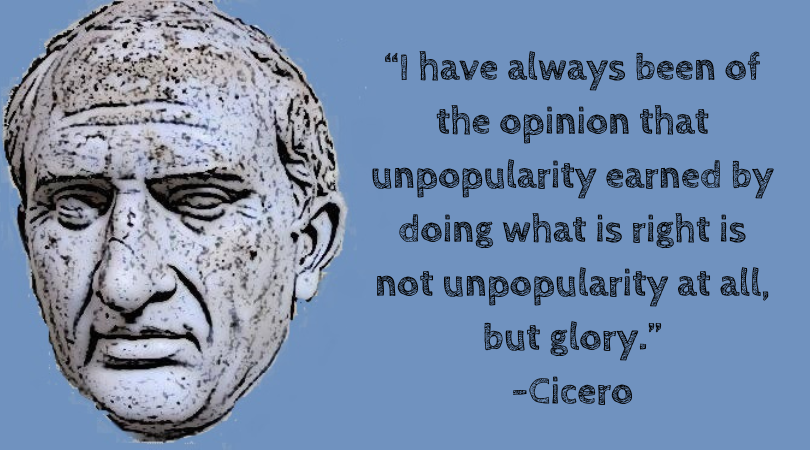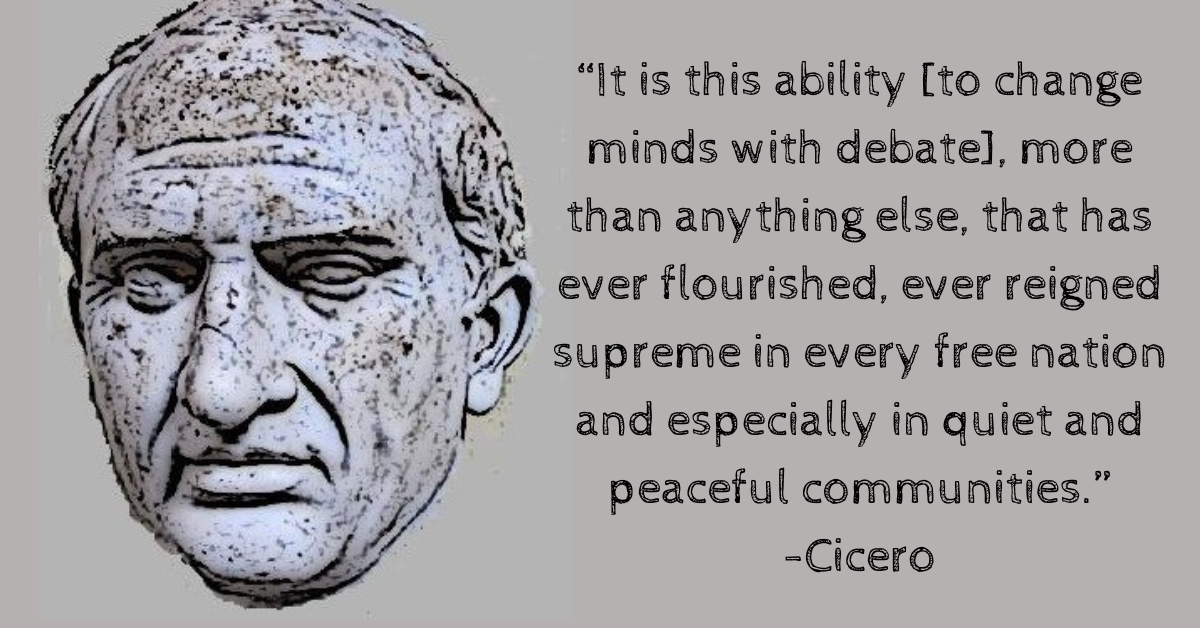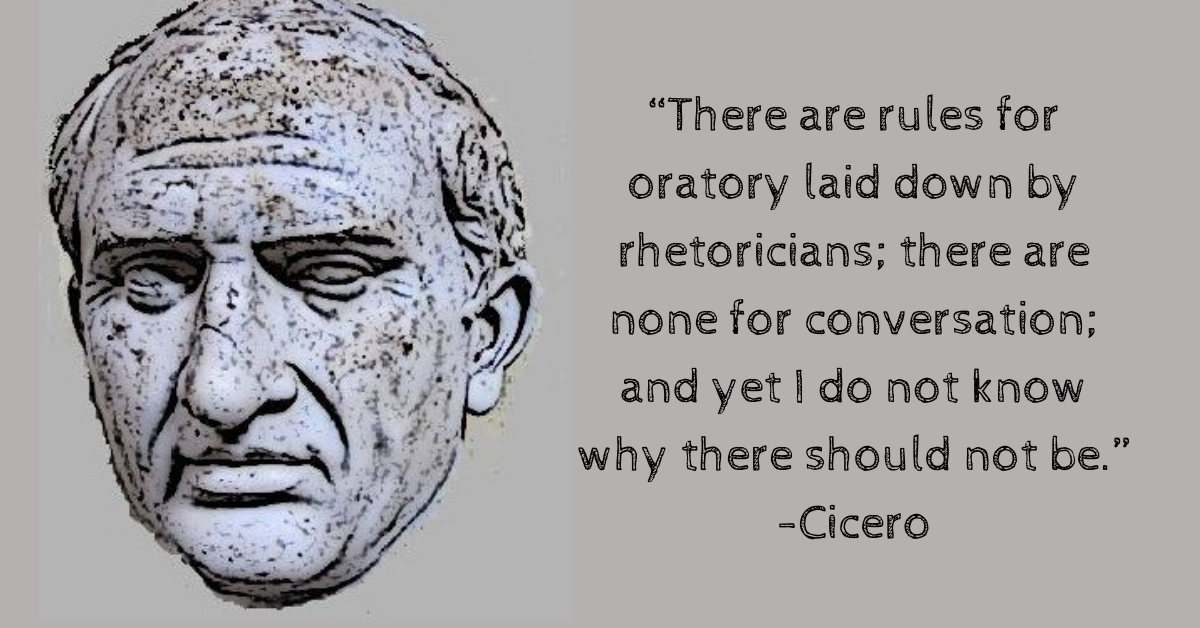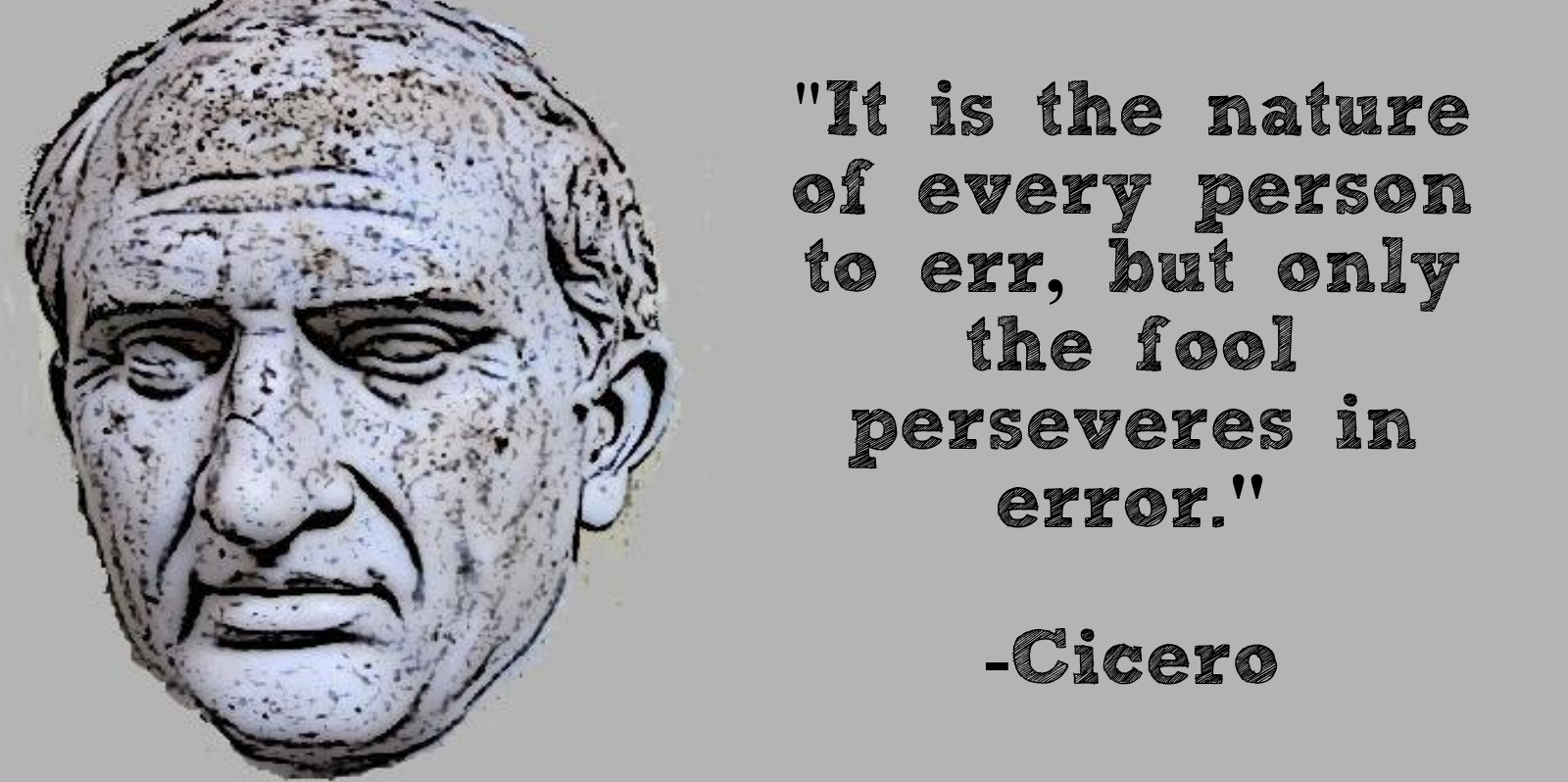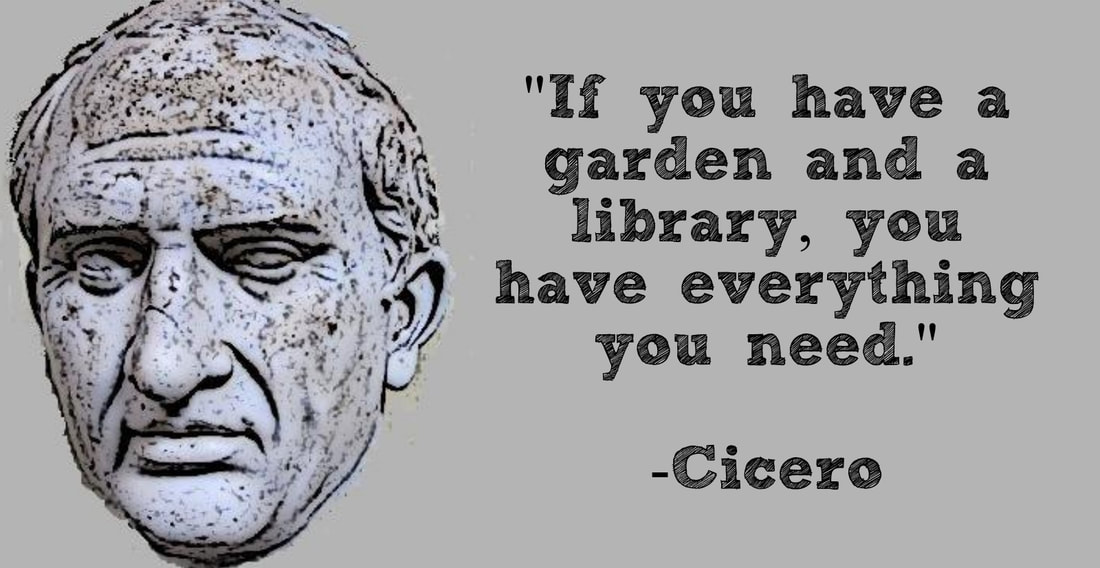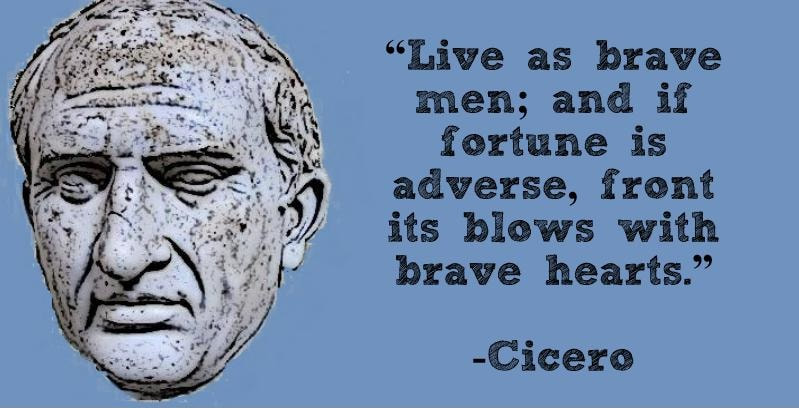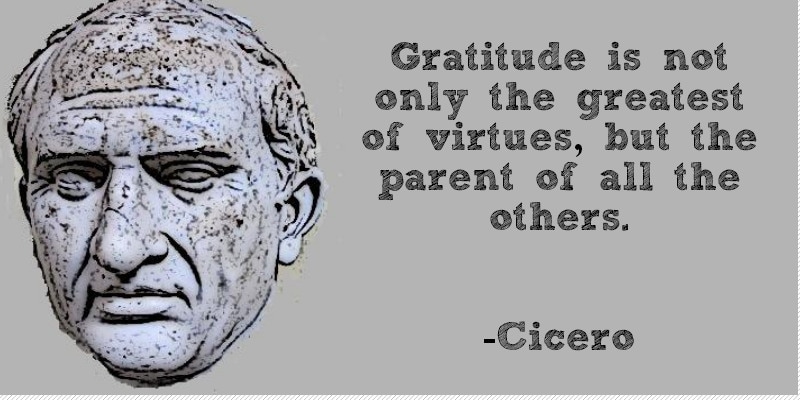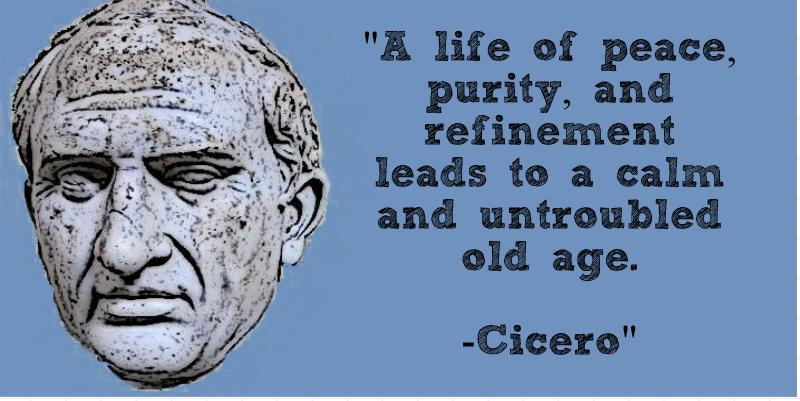Cicero has garnered renewed attention in recent years. He was a Roman Senator whose writings, as Historian Edward Gibbon put it, “breathed the spirit of freedom.” Particularly influential was his idea of natural law, followed by John Locke and other enlightenment thinkers: Human nature included reason, which could discover justice, which was the basis of law. Voltaire said “He taught us how to think.”
This month's post will focus on 3 of Cicero's opinions that may be unpopular, but are likely quite correct. Read on to find out what they are:

